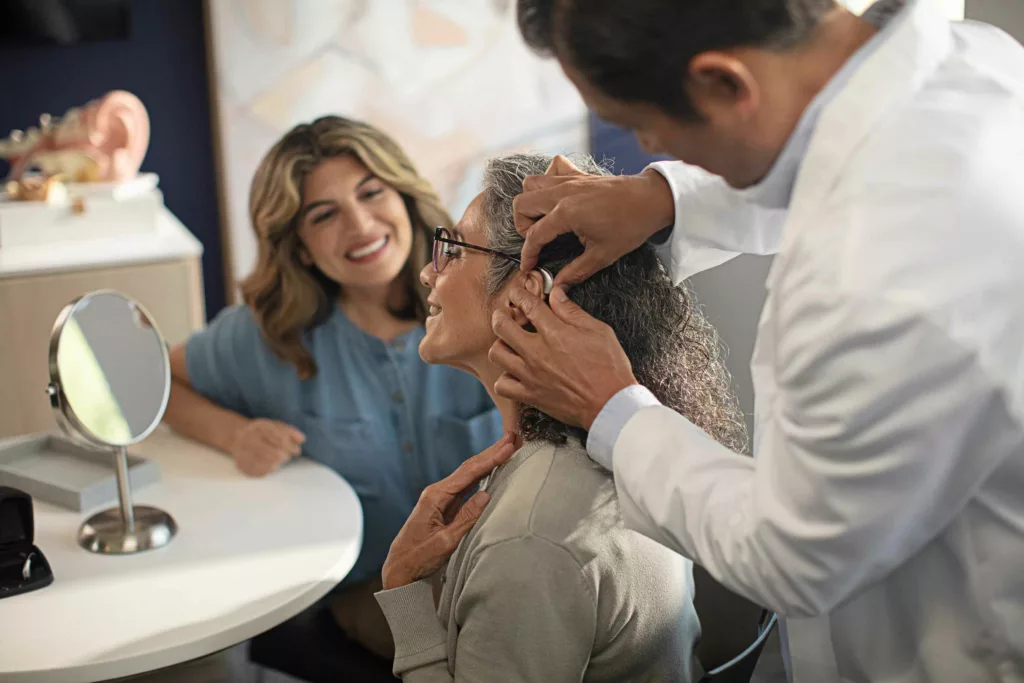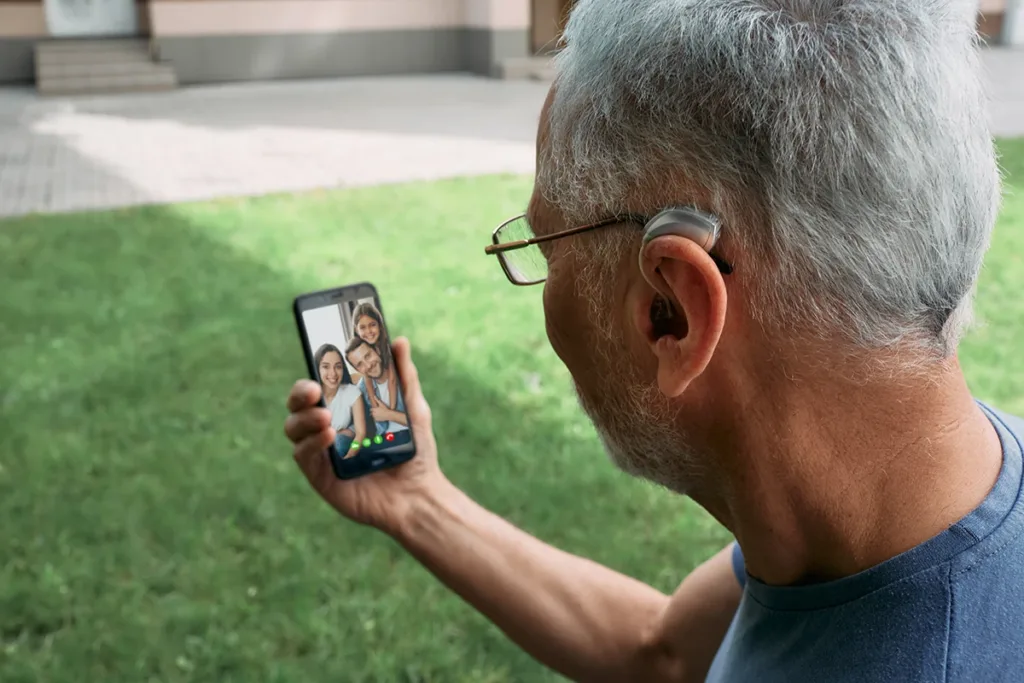Take Action
Hearing loss can take a significant toll on our emotional, physical, and mental well-being. But when we hear our best, nothing stops us from enjoying laughter, music, nature or conversations with family and friends.
Ways Better Hearing Benefits Us
Hearing helps connect us to the world around us. It helps us communicate effortlessly, listen to nature, enjoy movies and music. Hearing helps fuel us and undeniably makes moments more memorable and life more enjoyable. That is the Joy of Hearing.

Better Hearing Means Greater Confidence
Hearing plays a vital role in maintaining our independence: whether holding a conversation, driving, or following verbal directions, by prioritizing our hearing health, we can continue to live our everyday lives with relative ease and self-reliance.
On the other hand, when we ignore hearing damage, we significantly limit our confidence and autonomy.
We’re Safer When We Can Rely on Strong Hearing
Hearing plays a greater role in keeping us safe than you might expect. Sound is often one of the first and most noticeable warnings when something is wrong. A car horn, ambulance sirens, fire alarms, someone shouting for attention: these sounds help us stay aware of what’s going on. Strong, healthy hearing means better awareness and quicker reactions to danger.
Plus, a healthy ear means a healthy vestibular system: the part of our body that processes motion and maintains balance. When we’re proactive about our hearing health, we’re also reducing our risk of falls and balance-related incidences.1


Our Hearing Impacts Our Mental Health and Wellness
A healthy brain is a brain that can delegate. Our ears don’t just detect sound; they also help our brain understand those sounds. And when our brains can’t rely on our ears, because of things like untreated hearing loss, it causes extra strain on this delicate organ.
In fact, a growing body of research has found a direct link between hearing loss and brain atrophy (shrinkage), particularly in the temporal lobe.2
Relationships Flourish When We Can Hear with Confidence
Untreated hearing loss can chip away at your confidence in surprising ways. Struggling to follow conversations, missing important information, or asking people to repeat themselves can bring up feelings of shame, discouragement, and being a burden.
But when we can hear clearly and confidently, things like socializing, communicating, and maintaining relationships become that much easier.

What Can You Do Right Now for Better Hearing? Listen Up!
When our hearing is impaired, our sense of space shrinks, we miss warning cues, and we withdraw from social activities and situations. Though hearing loss is not reversible, it is treatable. And when it comes to hearing loss, it’s better to be proactive than reactive. Because the longer you wait to act, the longer and harder it will be to recover and adjust once treatment starts.
Protect Your Hearing Now, NOT Later
The most common form of hearing loss is noise-induced hearing loss (NIHL), affecting over 40 million Americans currently.3 And while we cannot cure or reverse NIHL, we can prevent it and protect against it with comprehensive hearing protection. Be sure when choosing proper hearing protection that you consider your hearing needs, preferences, and the situation.
Think You Have Hearing Loss? Here’s What to Do
Our network of trusted clinics provides FREE hearing screenings to anyone who suspects they have hearing loss. That’s because hearing is our passion, our focus, and our purpose.
Not Sure Whether You Have Hearing Loss? We Can Help!
Not sure whether you have hearing loss? We have a test for that! Try our FREE online hearing test. There’s no email required, and you receive results within 5 minutes.
References:
- Lin, F. R., & Ferrucci, L. (2012). Hearing loss and falls among older adults in the United States. Archives of internal medicine, 172(4), 369–371. https://doi.org/10.1001/archinternmed. 2011.728
- Armstrong, N. M., An, Y., Doshi, J., Erus, G., Ferrucci, L., Davatzikos, C., Deal, J. A., Lin, F. R., & Resnick, S. M. (2019). Association of midlife hearing impairment with Late-Life Temporal lobe volume Loss. JAMA Otolaryngology– Head & Neck Surgery, 145(9), 794. https://doi.org/10.1001/jamaoto.2019.1610
- Noise-Induced hearing loss. (2022, March 16). NIDCD. https://www.nidcd.nih.gov/health/noise-induced-hearing-loss
- Reed, Nicholas J, et al. Trends in Healthcare Costs and Utilization Associated With Untreated Hearing Loss Over 10 Years. JAMA Otolaryngology Head Neck Surgery. January 2019. Found on the internet at https://www.ncbi.nlm.nih.gov/pmc/articles/PMC6439810/